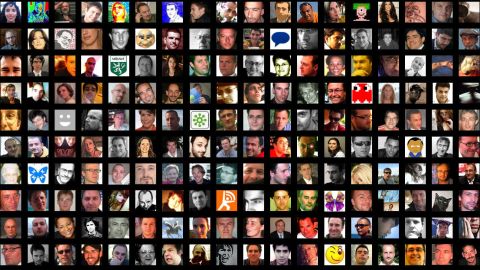The Pleasure of the Tweet

What’s the Big Ideas?
At first glance, when it comes to pleasure, humans aren’t so different from mice: we both activate the pleasure circuits in our brains by eating food, or having sex.
However, in a new book by David Linden called The Compass of Pleasure: How Our Brains Make Fatty Foods, Orgasm, Exercise, Marijuana, Generosity, Vodka, Learning, and Gambling Feel So Good, the noted neurobiologist and pleasure expert explores the “cognitive miracle” that has enabled humans to “short-circuit this pleasure circuit.”
In other words, humans can divorce pleasure from its evolutionary origins. We can artificially activate it “with things like heroin or nicotine or alcohol or amphetamines or cannabis,” Linden tells Big Think. And we can also activate pleasure from abstaining, because unlike mice, humans possess “a particular set of cultural or religious or political beliefs that underlie that.”
According to Linden:
When you take the evolutionarily ancient pleasure circuit and you interconnect with regions of the brain that are involved in things like emotion and planning and social cognition and decision-making, what you get is that utterly arbitrary things can now be pleasurable. Mere ideas can be pleasurable.
We certainly like that sentiment at Big Think. Indeed, absorbing information, even if it doesn’t have any adaptive value, is a pleasurable experience. Of course, we prefer information when it is useful, when we can learn from it. And yet, Linden demonstrates how are brains are hardwired to activate pleasure from knowledge-for-knowledge’s sake. We like that as well, and we are not alone.
In experiments with monkeys, for instance, Linden points out that our fellow primates, when given a choice, “always choose to get the information,” even if it’s useless.
What’s the Significance?
How different are humans in our evolutionarily-advanced 21st century context? “We take pleasure from celebrity gossip,” Linden points out. “We take pleasure from curling.” (This writer has yet to see any evidence that is a universal trait!)
And then there is the matter of our technologically advanced society that absorbs an enormous amount of information that has very little to do with passing on our genes to future generations. And yet many of us are quite addicted to this type of information flow that gives us a similar sense of pleasure, as Linden points out, to the excitement we feel when we gamble. When we feel our smart phones buzz it’s the same sensation as watching the roulette wheel: we are filled with the pleasure of anticipation.
So what does this all mean? The human brain is at once awesome and amazingly inefficient. “It’s a freaking mess in there,” says Linden. “And it’s a freaking mess both at these biological levels and a lot of times it’s a freaking mess at the behavioral level.”
And yet, this is all evidence, according to Linden, that humans are “wonderfully complicated,” and human culture is wonderfully complicated by “pastimes and ideas and information that are entirely divorced from the evolutionary concerns of getting our genes into the next generation.”
Watch the video here:





